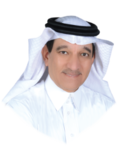King Salman inaugurated the Riyadh Metro on Nov. 27, marking it as the backbone of the capital’s public transport network and a key component of the King Abdulaziz Project for Riyadh Public Transport.
The project is part of the Royal Commission for Riyadh City’s ambitious plan to equip the capital with a public transport system that meets the current and future mobility needs of Riyadh’s population.
It is designed to establish and operate a world-class network offering comfortable, affordable and time-saving mobility options for all residents.
The network includes six metro lines, 85 metro stations, 80 bus routes, 2,860 bus stops and 842 buses, forming an interconnected system across Riyadh.
Strategically designed to accommodate population density, the network connects key points of interest, such as ministries, universities, hospitals, commercial hubs, transport centers and government facilities, while reducing traffic congestion and vehicle emissions.
The metro spans 176 km and serves densely populated areas. The stations feature unique, unified architectural designs that give the project a distinctive identity.
The metro is designed to provide passengers with safety and comfort. All stations are air-conditioned, equipped with passenger information systems and offer internet access. Selected stations also feature shops and parking facilities.
The King Abdulaziz project is expected to bring about a positive shift in public attitudes, encouraging residents to prefer public transportation over personal cars.
Equipping Riyadh with state-of-the-art public transportation aligns with the Kingdom’s efforts to protect the environment by reducing carbon dioxide emissions from vehicle exhaust.
Such a shift will help alleviate the traffic congestion that has long plagued Riyadh due to the absence of an adequate public transportation system.
As noted in a previous article, traffic congestion is one of the most pressing challenges to Riyadh’s growth and has become increasingly difficult to bear.
Prince Faisal bin Abdulaziz bin Ayyaf, the mayor of the Riyadh region, highlighted that more than 90 percent of the city’s residents rely on personal cars for transportation — compared to just 12 percent in Japan and 30 percent in the UK — underscoring the urgent need for a robust public transport system.
The project is expected to significantly reduce traffic congestion as Saudi nationals and expatriates adopt public transportation. The metro alone is projected to transport 3.6 million passengers daily.
Equipping Riyadh with state-of-the-art public transportation also aligns with the Kingdom’s efforts to protect the environment by reducing carbon dioxide emissions from vehicle exhaust.
Notably, about 15 years ago, King Salman, the former Riyadh governor and chairman of its development authority, presented the first Riyadh Metro document to the late King Abdullah. This document reflected King Salman’s visionary approach to the capital’s future and its transportation needs.
The proposal highlighted King Salman’s foresight and recognition of the importance of developing advanced transportation systems to address the city’s growing population and increasing traffic density.
• Talat Zaki Hafiz is an economist and financial analyst. X: @TalatHafiz












